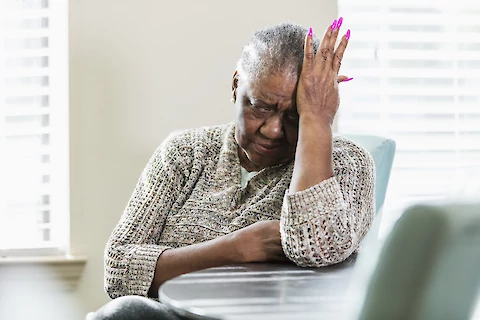
As our parents age, they face new challenges. Chronic pain may be one of them. How well they (and you) manage this pain can greatly impact their quality of life and daily activities.
Let's explore the common causes of chronic pain in seniors, ways to help manage it, and tips for effectively communicating with healthcare providers. Ready to get started?
Know the Common Causes of Chronic Pain in Seniors
Chronic pain can stem from numerous sources, and understanding the cause can help determine the most effective course of action. Some common causes of pain in seniors include arthritis, neuropathy, back pain, fibromyalgia, cancer, and osteoporosis. Identifying the root of the pain can help ensure that your senior parent receives the appropriate treatment and care they need. Don't hesitate to seek second opinions if your parent's medical provider can't identify the cause of their pain.
Help Manage Chronic Pain
There are both medical and non-medical methods available for managing chronic pain. Medical methods may consist of medications, physical therapy, injections, or even surgery in some cases. While these treatments can be effective, consult with your parent's healthcare provider to determine the best course of action for their specific needs.
Non-medical methods can also play a significant role in pain management. Encourage your senior parent to exercise regularly, as physical activity can help alleviate pain and improve overall health. Massage, acupuncture, and relaxation techniques like meditation can also help manage pain. Support groups can offer camaraderie and valuable advice from others dealing with chronic pain. Always remember to discuss any non-medical strategies with a healthcare provider before implementing them to ensure they're safe for your senior parent.
Communicate with Healthcare Providers
Open communication with healthcare providers is vital in determining the best course of action for your senior parent's chronic pain management. Here are some tips for effective communication:
- Be prepared with a list of questions and concerns when you go in for appointments.
- Take notes to help you remember important information discussed during visits.
- Bring a list of all medications and supplements your senior parent is taking.
- Don't hesitate to ask for clarification or more information if something is unclear.
If you're uncertain about the suggested course of action or feel that your concerns aren't being addressed, consider seeking a second opinion from another healthcare professional. Remember, you are your senior parent's best advocate.
Offer Emotional Support
Chronic pain can take a significant emotional toll on seniors. Encourage your parent to openly discuss their feelings and concerns, and offer a listening ear and empathy. Assisting with daily tasks and activities can help alleviate some of the stress they may be experiencing. Encourage them to maintain social connections and engage in hobbies, as this can help improve their overall mental well-being.
Do Your Research and Seek Expert Opinions
Throughout this journey, be sure to incorporate relevant research findings and expert opinions where appropriate. Educating yourself about chronic pain in seniors can help you feel more confident in supporting and advocating for your parent's needs.
Count on Senior Helpers
By understanding the common causes of pain, finding the appropriate pain management strategies, communicating effectively with healthcare providers, and offering emotional support, you can make a significant difference in your senior parent's life. If you're in the San Jose, Santa Clara, Santa Cruz, or Campbell areas, contact us at Senior Helpers San Jose for professional in-home caregiving services.